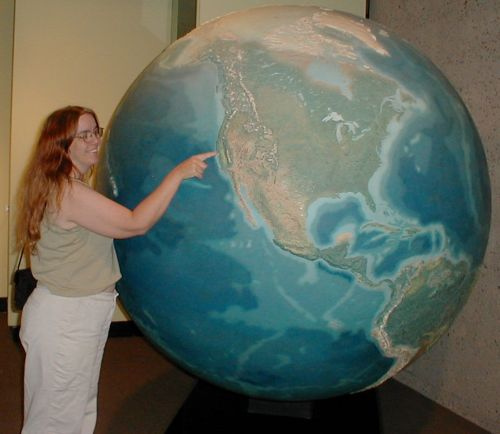The fault that triggered the quake was probably located on one of the many faults south of the San Andreas fault, [seismologist Lucy] Jones said. The fault is probably about 40 to 50 miles long, and probably shook for 20 to 30 seconds. The worst shaking would have occurred closest to the fault, said [seismologist Lucy] Jones .
She said scientists would not have enough information to identify the fault until geologists survey the area.
The quake occurred at the junction between two tectonic plates, the Pacific and the North American, that grind against each other through Baja California and California. The quake is probably on a strike-slip fault, which splices through the ground vertically and causes land to move horizontally.

A house collapses in on itself in Mexicali.

A telephone pole pulls wires down in Mexicali

Cars drive over a slightly buckled road in Mexicali

Commercial buildings crumble slightly in Mexicali

A picnic area shifts dramatically

In Ensenada, a twitterer's laptop sits open in front of gaping wall cracks. (Note Tweetdeck open, perhaps following the news.)

And in El Centro, California, a family's deck lies in their back yard. I thought we had better construction standards than that!
Animation: Dust (or smoke? probably dust) rises from the Mexicali area following the quake
More news is coming in, of course, the "did you feel it?" map is still changing. The quake was only 10 km deep, and I have no doubt we'll hear about more damage than is known so far. As quakes usually are, this one will be another learning experience.

2 comments:
I hadn't realized the USGS was crowdsourcing earthquake reports. This is cool.
(Also, being that kind of weirdo, I am amused that, because it's sorted by zip code, the one report from Tie Siding, WY, is listed before anything from Arizona or California.
Isn't that cool? I love this twitter account, that follows all sorts of keywords, looking for where quakes are and how they affect people http://twitter.com/usgsTED
Post a Comment